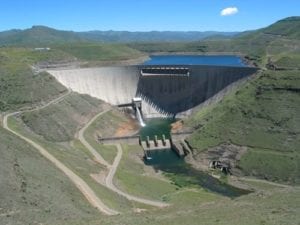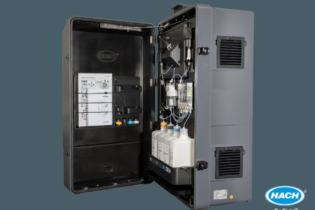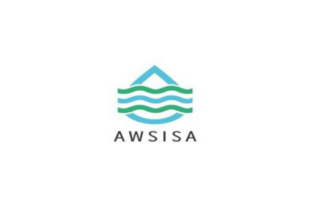
Minister of Water and Sanitation Nomvula Mokonyane
OUTA has accused Mokonyane of jeopardising the water security for Gauteng by delaying the development of the
LHWP II for more than two years to secure contracts for preferred service providers, costing South African taxpayers roughly an additional R2 billion.
The Department of Water and Sanitation (DWS) has said it will respond to OUTA on matters raised, but gave assurance that all efforts and plans are in place and are being implemented to guarantee a sustainable water future for South Africa.
OUTA’s allegations
OUTA is currently building a legal case to hold Mokonyane accountable as the custodian and regulator of water due to her maladministration, and to hold her accountable for delays to the LHWP II.
“This project was supposed to provide water to Gauteng next year, yet it hasn’t started and now it’s estimated that the project will not supply any water before 2025,” said Julius Kleynhans, Portfolio Director for Water at OUTA. “The minister has failed in her duty to proactively ensure water supply to the region and she continues to fail. We the citizens must hold the minister accountable.”
Among
OUTA’s concerns is that the critical engineering design contract for the Polihali Transfer Tunnel has not been awarded.
According to the organisation, delays were caused when the LHDA was without a board and technical sub-committee, some by political interference in the procurement. OUTA argues that the current interim arrangements are of a stop-gap nature and stability in the institutional structures is urgently needed. The new board and technical sub-committee must have the necessary technical skills and expertise for a major international project as clearly stipulated in the protocols and agreement.
OUTA has also requested that the minister of provide a detailed programme on LHWP II and explain the delays, as well as re-establish the Strategy Steering Committee to discuss openly the current status of the Vaal River System and report on progress on implementing the recommendations listed in her department’s planning documents. Civil society organisations must participate in this strategy steering committee.
The Department’s response

Minister Mokonyane has been accused of corruption in the Lesotho Water Highlands Project
The DWS stated that many of OUTA’s allegations are issues which have been raised in the past without any evidence having been produced to substantiate the claims. The DWS further pointed out that some of the matters contained in the allegations were investigated by the former Public Protector, leading to the minister being exonerated.
According the department, LHWP II is targeted for completion in early 2025 with storage of water in the new Polihali Dam commencing in 2024. Efforts are reportedly being made to mitigate delays necessitated by the amendments to the procurement policies and the several changes in government in Lesotho over the last five years.
Mokonyane noted that the review of the procurement policy for the development of LHWP II was necessitated by the need to ensure the meaningful economic participation of Basotho nationals and black-owned South African entities in the project. “This was a transformation imperative of the governments of both, Lesotho and South Africa,” she said.
The amended procurement policy was finalised and adopted by both South Africa and Lesotho in May 2016 giving way for the advertisement and appointment of service providers on the design contracts of the Polihali Dam and Tunnel.
Securing Gauteng’s water supply
Mokonyane said that government is doing all in its power to guarantee the water future of the country and of Gauteng as the economic hub of the country.
“LHWP Phase 2 is but one of the several interventions aimed at securing the water future of Gauten,” she said.
According to the minister, the long-term solution to acid mine drainage will begin to yield results in 2019/20, augmenting the current water supply in Gauteng significantly. This will be complemented by the ongoing replacement of ageing infrastructure, early detection of leaks and repairs, the use of alternative water saving technologies by industry and the implementation of efficient demand management systems by local authorities.








